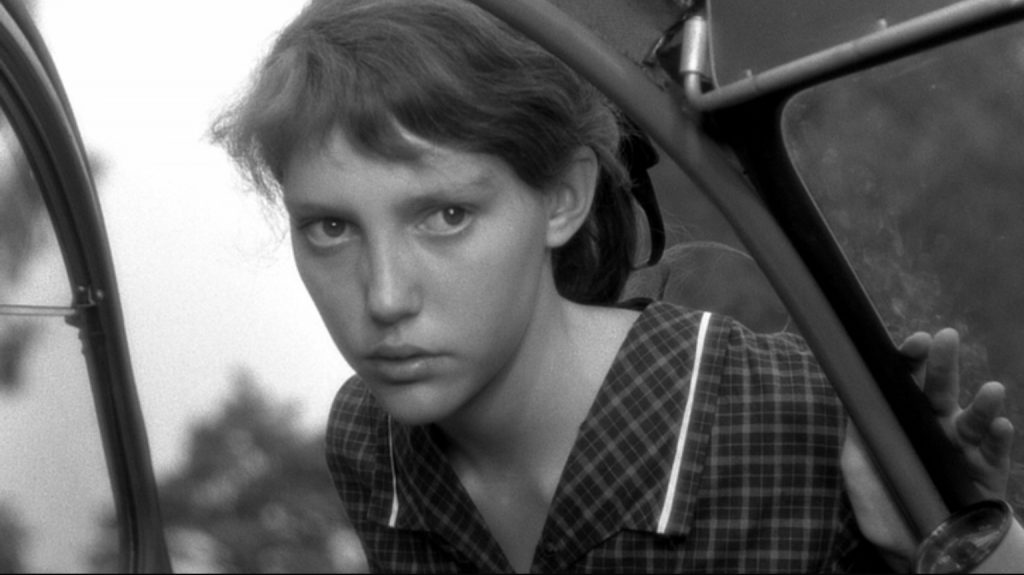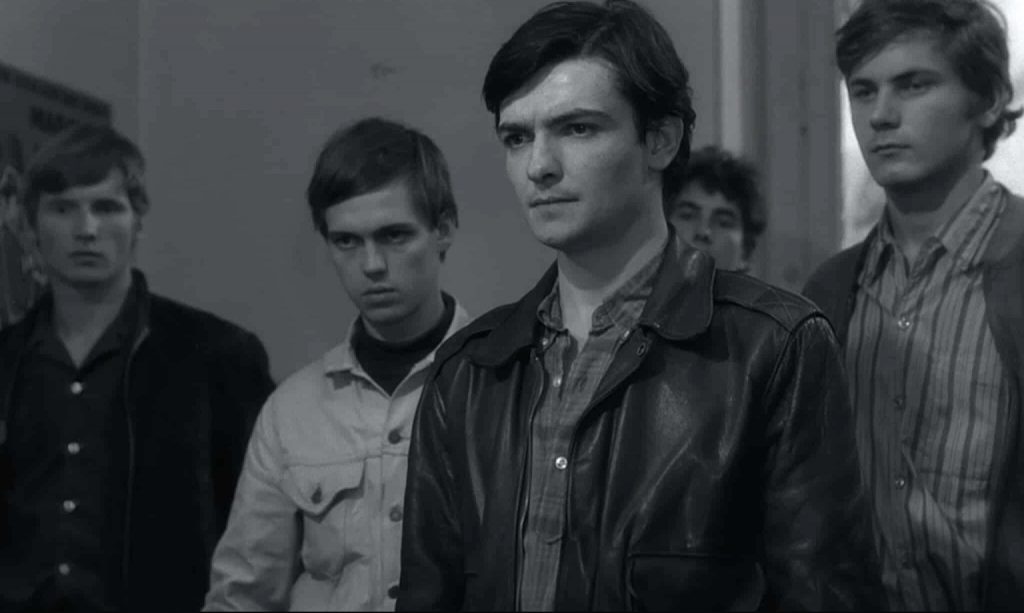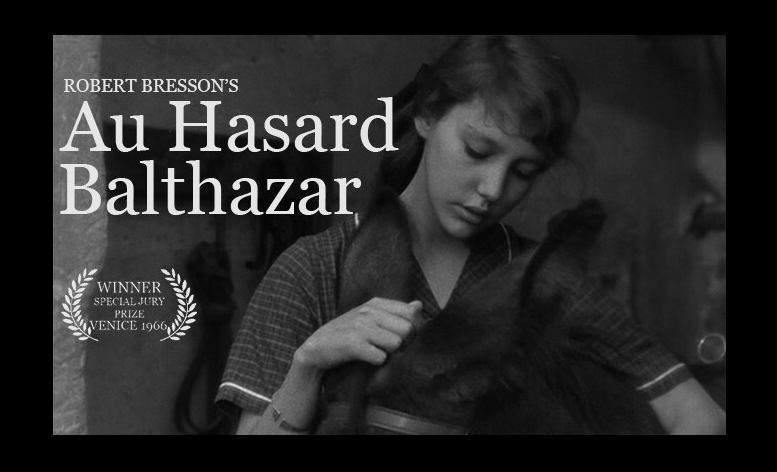Au Hasard Balthazar (1966).
On a small French farm a donkey foal is born. Two children, Marie and Jacques, fall in love with it and name it Balthazar. As the days and weeks pass, they play with it and more than just livestock, it becomes a pet.
Marie and Jacques are not siblings. The farm is owned by Jacques’ father and Marie’s father is the local schoolmaster. When Jacques’ mother passes away, his father, too distraught to stay, takes the boy away, entrusting Marie’s father to run the farm. As the years pass, the farm becomes relatively successful but of course, none of it belongs to Marie or her father. When there is a suspicion of fraud, her father refuses to show the receipts and he ends up losing everything. Whether he was stealing off the farm or not is never revealed, although one suspects he’s brought down because of his own sense of pride than any wrongdoing.
Balthazar is then passed through a number of owners, some whom treat him well, others who don’t. This is his life and we follow it from birth to death, all the time witnessing the lives, loves, crimes and misdemeanours of the people of the villages.

Films focusing on animals have been a mainstay of the movie business from the very beginning. From Rin Tin Tin, to Lassie, Babe and Marley & Me, and even The Lion King, animals have been used to express something in us that is distinctly human. They are either substitutes for us, as in the Disney films, or they are meant to act as inspiration to us in some way. Either way, they are meant to reveal something about us, and not about the animal itself.
In this respect Balthazar is no different. He’s there for us as a lens through which to witness the human world; however, Au Hasard Balthazar is a very different type of film. The donkey isn’t a substitute for anything that we are missing, and neither does it act as a proxy for us, telling a common story in a way which is a little more cute than we are normally presented with. Yes, the story is about us, about humanity and about how we treat each other and how we treat the creatures we live with and rely on, but that’s all.
Balthazar, the eponymous donkey, doesn’t propel the drama; instead he observes it. Director Robert Bresson doesn’t anthropomorphise the creature at all; throughout the film he’s just a donkey, no more, no less. However, through his impassive eyes we see the world. He looks upon the protagonists with true animal detachment and it’s this detachment that allows us, the audience, to witness almost voyeuristically, the machinations of this village.

He sees the complexity of the villagers, each are individuals and none mere cardboard cut-outs. Those who seem to be good have failings. Those who are bad also have softer sides. The donkey doesn’t judge, it merely observes, allowing us to make the judgements which we, as humans, are bound to do.
Marie is perhaps the most complex character here, partly because the film focuses more on her than any other human character. She dotes on the donkey, dressing him up in a hat and flowers, and seems to be completely devoted to her pet, however when the local gang breaks into the farm and abuses Balthazar, she does nothing.
The leader of the gang, Gerard, is the local trouble-maker and petty criminal and it is he that Marie falls for. Why? We aren’t told. From the moment she watches him beating the donkey from an upstairs window, we can see that she’s smitten. When Jacques returns later, professing his love for her and offering her a stable and successful future, she spurns him. She wants the bad boy, even though she’s aware that Gerard is no good for her and she will never be happy with him. It doesn’t matter of course, the end of the relationship is inevitable and ultimately she is abused by Gerard and his gang – stripped naked, beaten and locked in a house with just her misery to clothe her.
Balthazar’s life is of course more simplistic, but he does respond and change to the way that the world treats him. We cannot help but feel sorry for him as the weight he carries sometimes is too much for him, as he stumbles from tiredness, only to be whipped back into action. His burden is that he is a beast of burden. Marie’s burden is that she is as much a victim of the world that surrounds her and the people that mistreat her.

The problem some may have with Au Hasard Balthazar is to approach it as if it were just another animal-attraction. We have been conditioned with certain expectations which will certainly not be met here. These expectations may have clouded my own assumptions at the start too, however, these were quickly disavowed. The film is much bleaker than I thought. I can understand why Jean Luc Goddard claimed that the film contained ‘the world in an hour and a half’. This may be Goddard’s usual hyperbole, however, it’s easy to understand what he meant.
Austere in its style, Au Hasard Balthazar isn’t a hopeful or inspirational film, but it is a fairly compelling one, if only because of its willingness to look beyond the romanticism of the bucolic life and address the fact that it’s the complexity of humanity that makes us interesting.
My final score might not seem particularly high, however, I have an itch to re-watch it as I have a feeling that there is more to it than I caught on my initial viewing. This is often the sign of a great movie; you might not love it, but you want to revisit it. I’m not saying that Au Hasard Balthazar is a resounding classic, but it’s certainly one to be respected and it’s easy to understand how and why so many great filmmakers from Goddard to Scorsese hold it in such high regard.
Film ‘89 Verdict – 7/10

